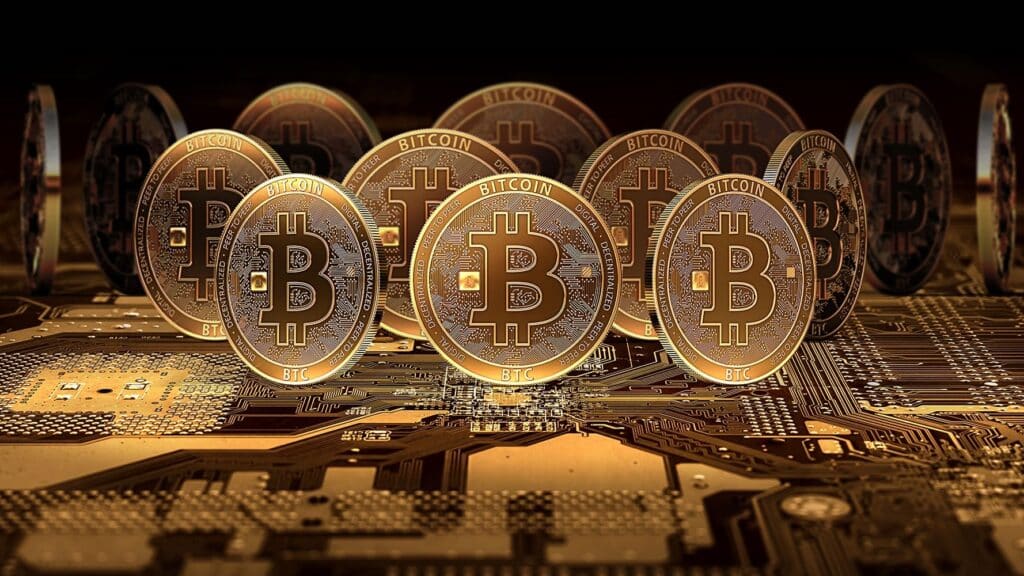The online gambling industry has evolved significantly over the years, with players enjoying a variety of gaming options ranging from slots and poker to sports betting. However, despite these advancements, one of the most pressing concerns for players remains ensuring the fairness of games. Traditional methods of verifying fairness have been somewhat opaque, leaving players unsure about whether the games they’re playing are genuinely unbiased. That’s where blockchain technology comes in, offering a solution that brings transparency, trust, and security to the online gambling space.
In this article, we will explore how blockchain is being used to verify gambling fairness, its impact on the industry, and how players can benefit from this cutting-edge technology. Whether you are a casual gambler or an experienced player, understanding the role of blockchain can help you make informed decisions when choosing online casinos or gambling platforms.
What is Blockchain and How Does It Work?
Before diving into its applications in gambling, let’s first understand what blockchain is and how it functions. Blockchain is a distributed ledger technology (DLT) that securely records transactions across a network of computers. It’s decentralized, meaning there is no central authority controlling the network. Instead, each participant (or node) has access to a copy of the ledger, ensuring transparency and accountability.
Each transaction made on the blockchain is grouped into a “block,” and these blocks are chained together in chronological order, creating an immutable record of every transaction. This immutability makes blockchain an ideal tool for situations that require trust and verification, such as online gambling.
The Importance of Fairness in Online Gambling
In the world of online casinos, fairness is one of the most critical aspects for both players and operators. When it comes to gambling, fairness means that players have an equal and transparent opportunity to win or lose based on their choices and the game’s mechanics, not due to manipulation or fraud. While most legitimate online casinos use Random Number Generators (RNGs) to ensure randomness, concerns about the transparency of RNGs and the trustworthiness of the casino remain. This is where blockchain technology comes into play.
How Blockchain Enhances Gambling Fairness
Blockchain brings a new level of transparency to online gambling by allowing players to independently verify game outcomes. Here’s how blockchain enhances fairness in online gambling:
1. Transparency in Game Results
One of the primary advantages of using blockchain in gambling is the ability to verify game results. Traditional online casinos rely on RNGs to generate random outcomes for games such as slots, blackjack, and roulette. However, these RNGs are often black-box systems, meaning that players cannot see how the results are determined or whether they are truly random. Blockchain, on the other hand, offers a transparent record of every transaction or game outcome.
For example, blockchain can be used to store the seed values (the starting point for generating random numbers) and the outcomes of each round of a game. These results are recorded in a public ledger, which players can independently verify at any time. This transparency ensures that game results are not manipulated, offering players greater confidence in the fairness of their gameplay.
2. Immutable Record of Transactions
Another significant benefit of blockchain in gambling is the immutable record of all transactions. When a player makes a deposit, places a bet, or withdraws funds, these actions are recorded on the blockchain, creating a transparent and unalterable history of events. This prevents fraudulent activities such as rigging games or altering player balances without detection.
With blockchain’s immutable nature, players can track every aspect of their gaming experience, from deposits to winnings, ensuring that everything is handled fairly and according to the rules. Moreover, players can check the blockchain to ensure that winnings are being paid out correctly and that no unauthorized transactions have occurred.
3. Provably Fair Games: A Revolutionary Concept
One of the most exciting applications of blockchain technology in online gambling is the concept of “provably fair” games. Provably fair games are those where players can verify the fairness of each round in real-time using blockchain technology.
In provably fair games, each round’s outcome is determined by a combination of the server’s seed, the player’s seed, and a random value generated at the time of the game. All of this data is stored on the blockchain, allowing players to verify that the game result was not manipulated. Players can even check the randomness of the seed values and the outcome to ensure that it was not tampered with by the casino.
For example, in a provably fair slot game, the casino will publish the seed values and the result of each spin on the blockchain. Players can then use these values to confirm that the spin result was generated fairly and randomly. This level of transparency is impossible to achieve with traditional gambling systems.
4. Fairness Audits and Third-Party Verification
Blockchain also enables third-party audits of gambling platforms. Independent auditors can access the blockchain to verify that a casino or betting site is adhering to fair gaming practices. These audits help ensure that the casino is not manipulating game results or cheating players. By offering blockchain-based verification, gambling platforms can demonstrate their commitment to fairness and build trust with their player base.
These audits are not just limited to game results; they also extend to the casino’s financial operations, such as ensuring that winnings are paid out promptly and that player funds are securely stored. Third-party auditors can access the blockchain ledger to confirm that all transactions are legitimate and comply with industry standards.
Real-Life Examples of Blockchain in Online Gambling
Several online gambling platforms have already adopted blockchain technology to enhance fairness and transparency. Let’s take a look at a few examples:
1. FunFair Technologies
FunFair Technologies is a blockchain-based gaming platform that leverages Ethereum’s blockchain to provide provably fair casino games. FunFair uses its own proprietary technology to ensure that every game result is verifiable and transparent. Players can track every aspect of their gaming experience and verify the fairness of the outcomes in real-time.
2. Edgeless Casino
Edgeless Casino is one of the first online casinos to offer fully blockchain-based gambling. Edgeless uses the Ethereum blockchain to store game outcomes, ensuring that players can verify the fairness of each game they play. The casino also offers provably fair games such as blackjack and roulette, where players can check the results of each round before placing bets.
3. Primedice
Primedice is a popular online dice game platform that uses Bitcoin and blockchain technology to offer provably fair gaming. Primedice uses a combination of server-side and client-side seeds to ensure randomness in each roll. Players can verify the fairness of every dice roll on the blockchain, giving them confidence in the game’s outcomes.
Advantages of Blockchain for Gambling Fairness
Blockchain technology offers several advantages for online gambling fairness:
- Transparency: Blockchain provides an open ledger that players can access to verify game results, transactions, and seed values.
- Security: Blockchain’s decentralized and immutable nature ensures that transactions are secure and cannot be altered.
- Trust: Blockchain builds trust between players and casinos by offering verifiable evidence that games are fair and outcomes are random.
- Reduced Fraud: Blockchain eliminates the possibility of rigging games or manipulating player balances, reducing the risk of fraud.
Challenges and Limitations of Blockchain in Gambling
While blockchain technology offers numerous benefits, it also comes with some challenges:
- Adoption: The widespread adoption of blockchain technology in the gambling industry is still in its early stages. Many casinos and betting sites have yet to implement blockchain-based solutions.
- Technical Barriers: Not all players are familiar with blockchain technology, and understanding how to use it can be a barrier for some users.
- Regulation: The regulatory landscape for blockchain-based gambling is still evolving, and some jurisdictions may not yet recognize or regulate blockchain casinos.
Conclusion: The Future of Blockchain in Online Gambling
Blockchain technology is revolutionizing the online gambling industry by offering transparency, security, and provably fair games. By using blockchain to verify game results, create immutable transaction records, and facilitate third-party audits, casinos can build trust with players and ensure that their games are fair and unbiased.
As the adoption of blockchain technology grows, players can expect to see more gambling platforms implementing these solutions to enhance fairness and provide a more transparent gaming experience. Whether you’re a casual player or an experienced gambler, understanding the role of blockchain in online gambling is crucial for making informed decisions and enjoying a secure, fair gaming experience.



